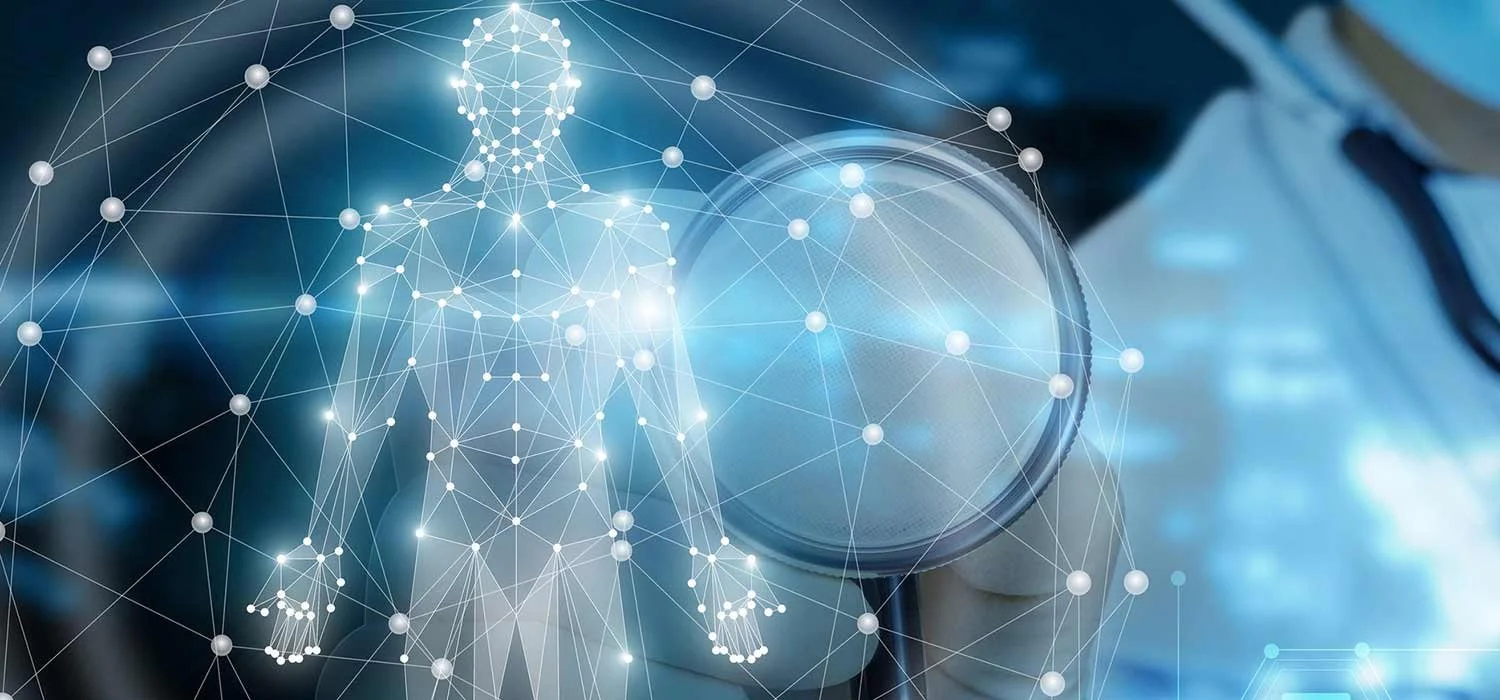Stories you may like
AI in Healthcare
The rise of artificial intelligence in healthcare has been revolutionary, completely reshaping how patients are diagnosed, treated, and monitored. The impact of AI in healthcare is evident across every level of the medical ecosystem, from research and clinical documentation to treatment and patient engagement. By delivering more accurate diagnoses and enabling highly personalized treatment plans, artificial intelligence in healthcare is transforming outcomes for patients while streamlining workflows for providers. One of the greatest strengths of AI in healthcare is its ability to analyze vast amounts of clinical data quickly, helping professionals identify disease markers, patient risks, and population health trends that might otherwise be missed.
The applications of artificial intelligence in healthcare are incredibly broad and far-reaching. AI in healthcare is already used to scan radiology images for early detection of cancers and heart disease, predict outcomes using electronic health records, and improve clinical trial design. By embedding artificial intelligence in healthcare into hospital systems, outpatient clinics, and even home monitoring devices, medical providers can offer smarter, faster, and more efficient care. As a result, AI in healthcare is widely recognized as the future of medicine, delivering better care quality while reducing costs and enhancing efficiency.
The story of artificial intelligence in healthcare began prominently with IBM’s Watson, one of the earliest high-profile AI systems. In 2011, IBM launched a healthcare-specific version of Watson that relied on natural language processing to interpret and analyze medical information. This was one of the first demonstrations of AI in healthcare being used to improve decision-making in real-world settings. Today, IBM has been joined by tech giants such as Apple, Microsoft, and Amazon, all of whom are investing heavily in artificial intelligence in healthcare technologies designed to revolutionize the sector.
The potential of AI in healthcare is nothing short of remarkable. Experts predict that artificial intelligence in healthcare will continue to redefine how we process clinical data, diagnose complex conditions, develop breakthrough treatments, and even prevent diseases before they occur. By using AI in healthcare, physicians and care teams can make better-informed decisions based on accurate, real-time insights—saving time, reducing costs, and improving patient records management. Whether identifying new cancer therapies, monitoring chronic disease progression, or improving the patient experience, artificial intelligence in healthcare stands as a game changer.
Looking ahead, AI in healthcare promises to usher in a new era of precision medicine, where patients receive tailored treatment faster and more accurately than ever before. By embracing artificial intelligence in healthcare, the industry can achieve the dual goals of enhancing patient outcomes while making care delivery more efficient and sustainable for providers. Ultimately, the future of medicine will be defined by how effectively we harness the power of artificial intelligence in healthcare—a future where technology and human expertise combine to deliver unprecedented levels of care.
Machine Learning
Machine learning, a key component of AI used in healthcare, has significantly reshaped healthcare by enhancing medical diagnosis and treatment. By processing vast amounts of clinical data, algorithms can identify patterns and predict medical outcomes with unprecedented accuracy. This technology aids in analyzing patient records, medical imaging, and discovering new therapies, thus helping healthcare professionals improve treatments and reduce costs. Machine learning enables precise disease diagnosis, customized treatments, and detection of subtle changes in vital signs, which might indicate potential health issues. Precision medicine, the most common application, predicts effective treatment procedures based on patient-specific data through supervised learning. Additionally, deep learning, a subset of AI, is used in healthcare for tasks like speech recognition through natural language processing. As deep learning advances, understanding and utilizing it in clinical settings will become increasingly crucial for healthcare professionals. See our page Benefits of Machine Learning in Healthcare for more on the topic.
Natural Language Processing
Natural language processing (NLP) is a form of artificial intelligence that enables computers to interpret and use human language. This form of AI used in healthcare is reshaping the healthcare industry. NLP is being used in a wide range of health data applications, such as improving patient care through better diagnosis accuracy, streamlining clinical processes, and providing more personalized services.
For example, NLP can be applied to medical records to accurately diagnose illnesses by extracting useful information from health data. Additionally, it can be used to identify relevant treatments and medications for each patient or even predict potential health risks based on past health data. Furthermore, NLP also provides clinicians with powerful tools for managing large amounts of complex data – something which would normally take much longer to do manually.
Natural language processing is proving to be an invaluable tool in healthcare – allowing medical professionals to use artificial intelligence to more accurately diagnose illnesses and provide better personalized treatments for their patients. This form of AI in healthcare is quickly becoming a must-have in the modern healthcare industry and is likely to become even more sophisticated and be used in a wider range of applications.
Rule-based Expert Systems
Expert systems based on variations of ‘if-then’ rules were the prevalent technology for AI in healthcare in the 80s and later periods. The use of artificial intelligence in healthcare is widely used for clinical decision support to this day. Many electronic health record systems (EHRs) currently make available a set of rules with their software offerings.
Expert systems usually entail human experts and engineers to build an extensive series of rules in a certain knowledge area. They function well up to a point and are easy to follow and process. But as the number of rules grows too large, usually exceeding several thousand, the rules can begin to conflict with each other and fall apart. Also, if the knowledge area changes in a significant way, changing the rules can be burdensome and laborious.
Diagnosis and Treatment Applications
Diagnosis and treatment of disease has been at the core of artificial intelligence AI in healthcare for the last 50 years. Early rule-based systems had potential to accurately diagnose and treat disease, but were not totally accepted for clinical practice. They were not significantly better at diagnosing than humans, and the integration was less than ideal with clinician workflows and health record systems.
But whether rules-based or algorithmic, using artificial intelligence in healthcare for diagnosis and treatment plans can often be difficult to marry with clinical workflows and EHR systems. Integration issues into healthcare organizations has been a greater barrier to widespread adoption of AI in healthcare when compared to the accuracy of suggestions. Much of the AI and healthcare capabilities for diagnosis, treatment and clinical trials from medical software vendors are standalone and address only a certain area of care. Some EHR software vendors are beginning to build limited healthcare analytics functions with AI into their product offerings, but are in the elementary stages. To take full advantage of the use of artificial intelligence in healthcare using a stand alone EHR system providers will either have to undertake substantial integration projects themselves, or leverage the capabilities of third party vendors that have AI capabilities and can integrate with their EHR.
Administrative Applications
Artificial Intelligence in healthcare is changing many of the administrative aspects of medical care. By automating mundane tasks, such as data entry, claims processing and appointment scheduling, using artificial intelligence in healthcare can free up time for providers and healthcare organizations to focus on patient care and revenue cycle management. Furthermore, artificial intelligence also has the potential to reduce human error by providing a faster way to review health records, medical imaging, claims processing and test results. With artificial intelligence giving medical professionals more autonomy over their workflow process, they are able to provide better quality patient care while maintaining budget efficiency. The ability of AI in healthcare to analyze the medical history of a patient and deliver better and faster results is reshaping the way healthcare providers deliver care, making it possible for them to devote more time and resources to their patients. With artificial intelligence AI in healthcare leading the charge in improving patient care, medical professionals can be confident that they can focus on delivering quality care while also saving time and money with AI-powered administrative tasks.






User's Comments
No comments there.